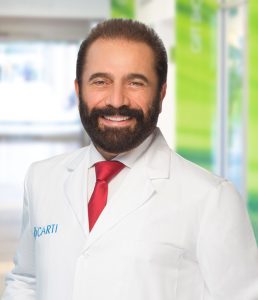Cancer control begins with risk reduction
by July 28, 2024 5:56 pm 145 views

Health is our greatest asset. Not only does good health enable us to engage in and enjoy our daily lives, but it also leads to significant lifetime cost savings for individuals and communities. When we feel and function at our best, we can be more productive at work, contribute to our households and cherish moments with our loved ones.
What if we had the opportunity to safeguard our long-term health and reduce the risk of developing life-altering diseases like cancer? Saying yes would be a given. The good news is that this opportunity is already available.
A recent American Cancer Society (ACS) study reaffirms that proper risk reduction can significantly enhance our chances of maintaining good health and the corresponding physical, emotional, mental and financial rewards.
In early July, the ACS released research revealing that four in ten cancer cases and nearly half of all cancer deaths in adults 30 years and older were attributable to modifiable risk factors. The study identified cigarette smoking, excess body weight, alcohol consumption, physical inactivity, diet and infections as the primary contributors. Among these, cigarette smoking emerged as the most significant factor, responsible for 20% of all cancer cases and 30% of all cancer deaths.
While enlightening, the implications of the ACS’ research are not entirely new. Scientific data from the U.S. Centers for Disease Control and Prevention (CDC), National Institutes of Health, and other leading medical organizations have consistently demonstrated our individual and collective ability to reduce cancer incidence through preventive measures.

The latest ACS study should inspire us to intensify our risk reduction efforts—both personally and collectively. First and foremost, we must acknowledge that a proactive approach can lead to lower rates of certain cancers. Additionally, we should understand that early detection can enable more effective, less invasive and often much less costly treatments if cancer diagnoses do occur.
Specifically for tobacco use, the ACS study should motivate us to continue raising awareness about the benefits of smoking cessation and lung cancer screening. This includes expanding statewide access to and utilization of low-dose CT scans, a proven tool for detecting and treating the disease in earlier, less advanced stages.
We should also consider the value of cost-effective interventions to promote healthy body weight and diet. According to the ACS, these lifestyle modifications can help “substantially reduce the number of cancer cases and deaths in the country,” particularly among younger individuals.
Additionally, we should increase the uptake of effective vaccines among eligible populations, such as for human papillomavirus (HPV), which the CDC states can “prevent more than 90% of HPV-attributable cancers.”
The ACS study confirms what we’ve long known—cancer control begins with risk reduction. At CARTI, we hope the ACS study will serve as a call to action for others to join us in encouraging our state’s residents to protect their most valuable resource—their health—through measures like those detailed above.
If you have questions about reducing your cancer risk and what screenings you may be eligible to receive, talk to your health care provider.
Editor’s note: Dr. Sam Makhoul is the medical director of clinical research and a board-certified medical oncologist at CARTI, a not-for-profit, multidisciplinary cancer care provider with 18 locations across the state. The opinions expressed are those of the author.
